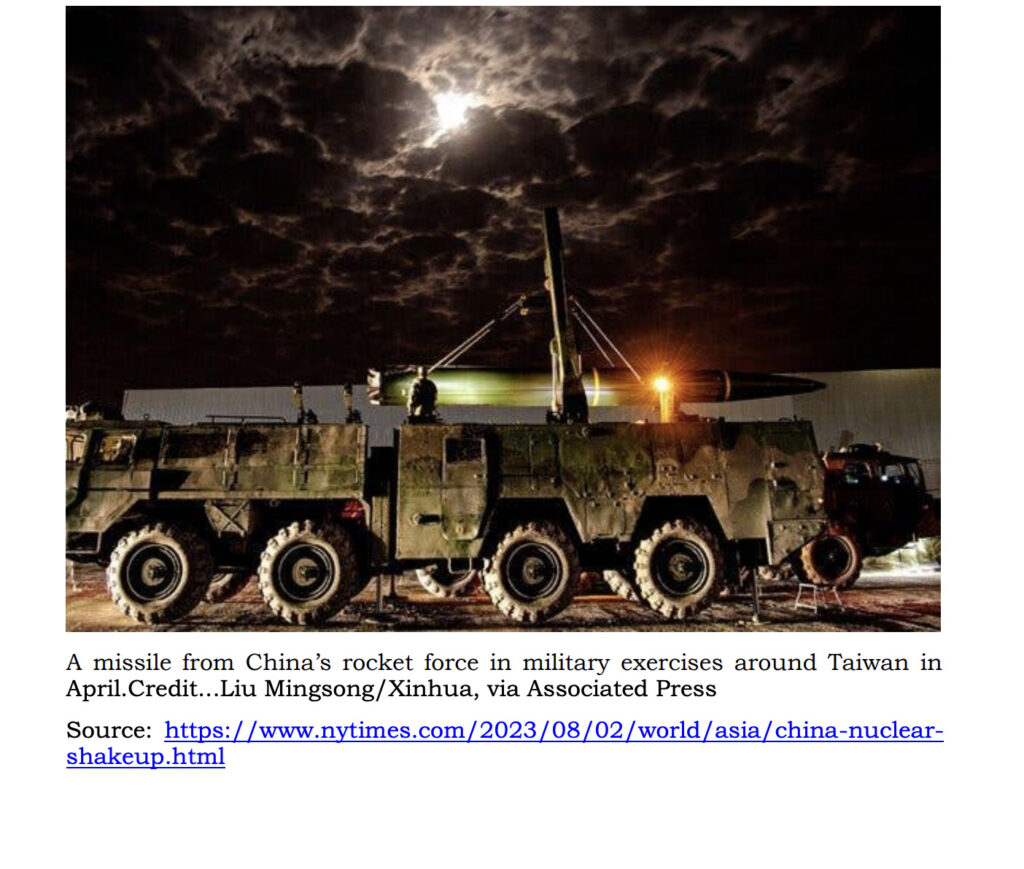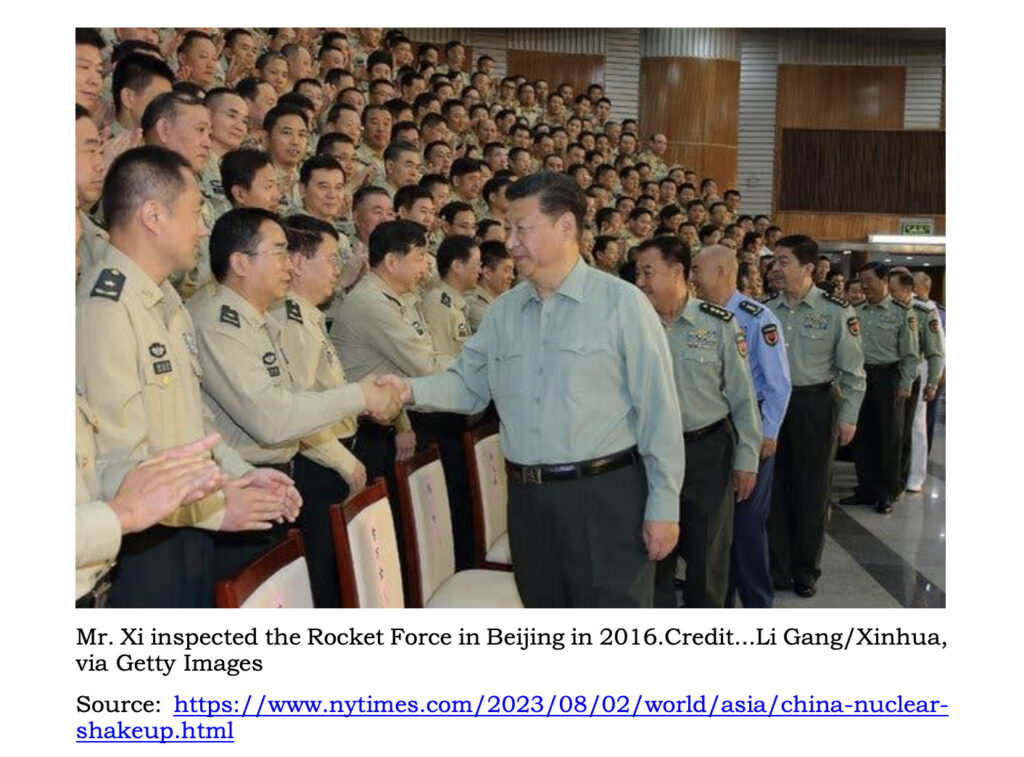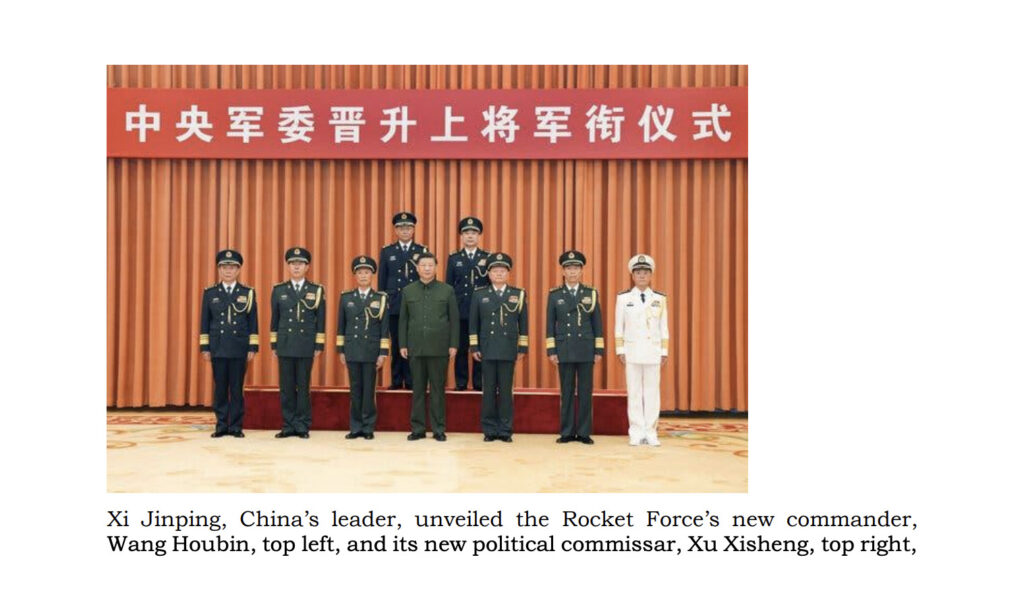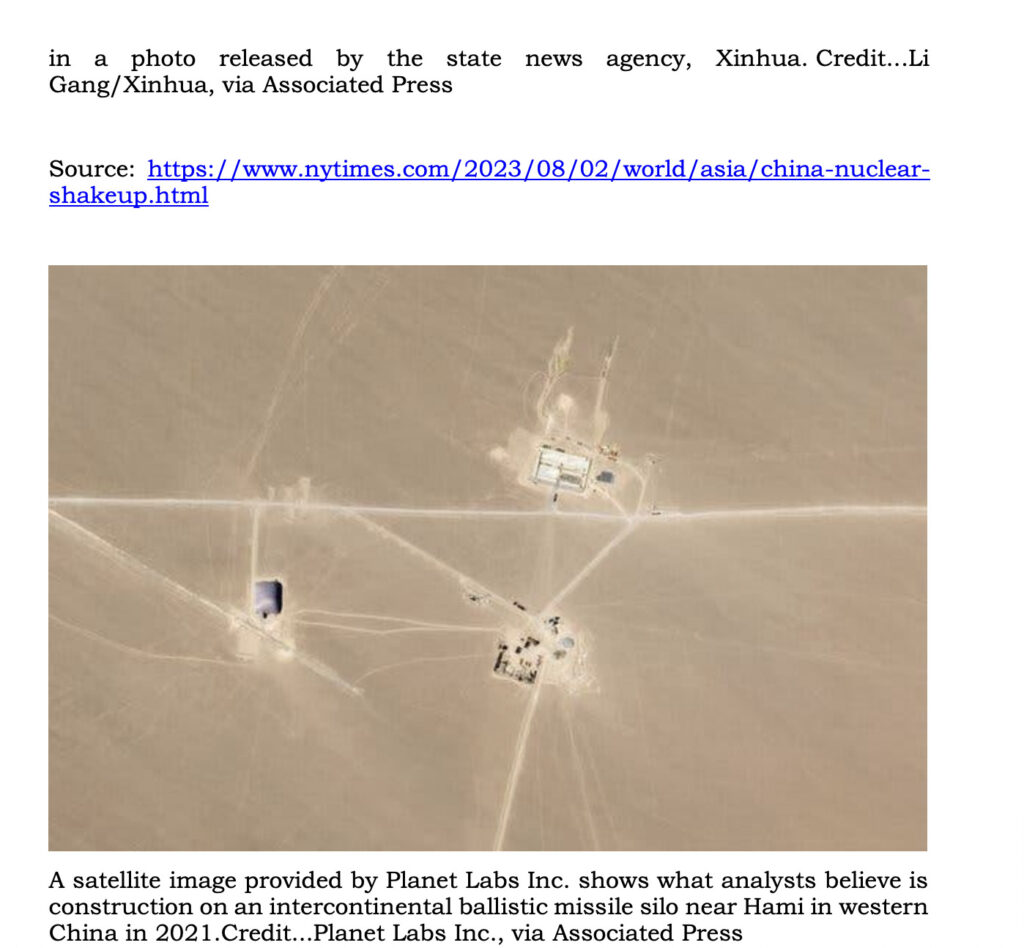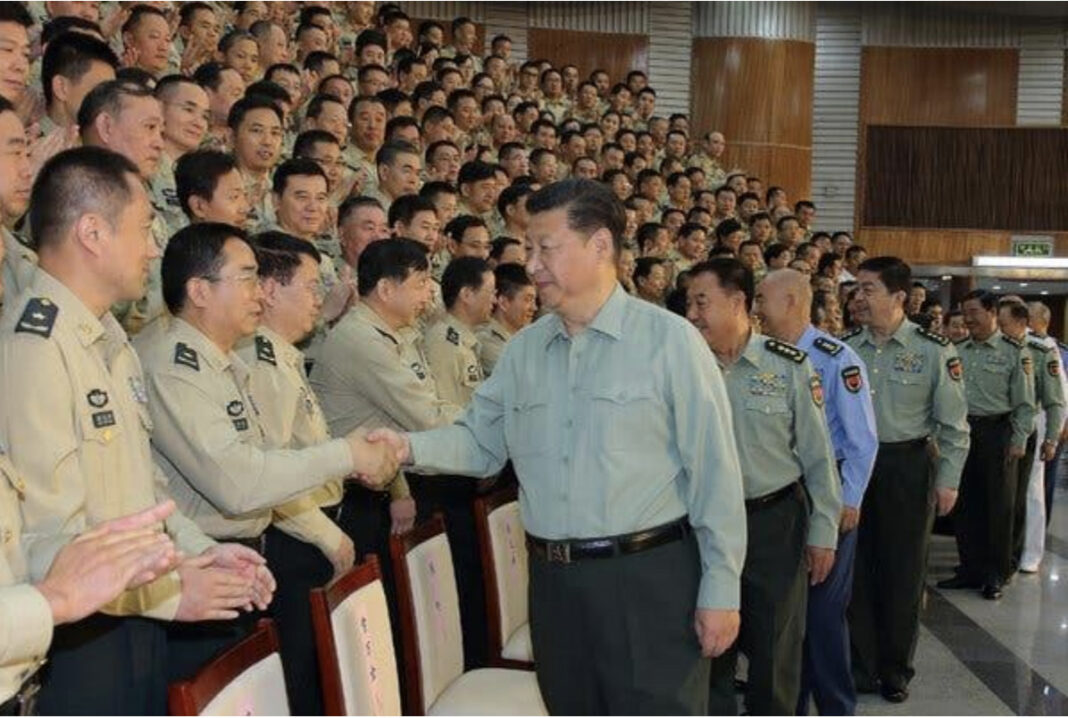This is the season of disappearances in China. First, Qin Qang the Foreign Minister went missing, only to be replaced by veteran Wang Yi. Then President Xi Jinping replaced two top commanders of the Rocket Force fanning speculation about corruption or failings in the force that manages China’s nuclear missiles. The replacement of the top two in the Rocket Force with outsiders with no experience of such matters was even more surprising. It was the highest-level upheaval in China’s military in over five years.
The shake-up in the rocket force indicated that the force’s expansion has been accompanied by serious problems in its top ranks. Suspicions of corruption or disloyalty to Xi Jinping may slow or complicate China’s upgrade of its conventional and nuclear missiles. Significantly, this probably signals the start of a new anti-corruption campaign to ensure discipline within the ranks and allow Xi to exercise greater control over the Rocket Forces.
Unusually, General Xu Xisheng, the new Commissar of the Rocket Force, is politically higher ranked than the new highest commander, General Wang Houbin notes the New York Times. General Xu is a full, voting member of the Central Committee, a council of several hundred senior Communist Party officials, while General Wang is not on the committee at all. General Xu is poised to chair the powerful party committee of the Rocket Force. President Xi has since installed two new leaders, the new commander, Wang Houbin, was earlier a deputy commander in the Navy while the new second-in-charge, Xu Xisheng, is the force’s political commissar overseeing discipline and personnel issues, is from the Air Force.
The reasons for the removal of the former commanders of the Chinese Rocket Force, General Li Yuchao and his deputy, General Liu Guangbin, are unclear. Their absence has set off a flurry of speculation, including rumours that one or both were recruited as spies, and allegations of corruption as stated by the South China Morning Post. Graft involving the force’s big spending on missiles, silos and technology seemed the most plausible cause for the downfall of the two leaders.
This comes close on the heels of the expulsion of Li Dong, former Deputy Manager of China Energy. From the CPC. The punishment was announced in by the CPC Central Commission for Discipline Inspection and the National Commission of Supervision. An investigation found that Li, also formerly a member of the company’s leading Party members group, lost track of his ideals and beliefs, and resisted investigations into his problems and committed a series of wrongdoings in disregard of the central Party leadership’s eight-point decision on improving Party and government conduct, such as attending banquets, accepting invitations to travel and play golf, and taking money and gifts against the rules.
The disappearance and replacement of Qin Qang as Foreign Minister was even more surprising. He had been Foreign Minister for only seven months and was an experience diplomat having twice served as foreign ministry spokesman, first from 2006 to 2014 and then again from 2014 to 2018. Qin was last seen in public on 25 June, when he held talks with counterparts from Russia, Vietnam, and Sri Lanka. Since then, he has been conspicuously absent from his duties at a time of intense diplomatic activity for China,
including efforts to stabilise relations with the US.
The announcement of Qin’s removal comes a month after the high-profile minister, disappeared after videos of him and a well-known Chinese anchor appeared online.
The Qin Gang episode is the tip of the iceberg. The real challenge for Xi Jinping lies below the surface within the Rocket Force which in the years since China’s leader came to power has been one of his crowning creations, the custodian of China’s expanding nuclear arsenal. The force, with its array of missiles and launch silos, embodied Xi’s ambitions to elevate his country as a respected and feared power ready to counter US supremacy. Apart from the disappearance of General Li Yuchao and General Liu Guangbin, word of the death of Wu Guohua, a former deputy commander in the force, also fanned the speculation about corruption investigations within the force.
A Chinese news website recently issued a report that Wu had died of cancer, but the report was taken down, intensifying speculation that his death was suspicious. And last week, the procurement office for the PLA issued a call for information about possible corruption in contracts dating back to 2017.
Whatever the ultimate reason, Xi’s shakeup in the Rocket Force’s leadership suggests that he is anxious to reinforce his dominance and control over it. Xi Jinping must have seen how Russia’s failures in its invasion of Ukraine in part reflected corruption and false bravado among Russia’s generals.
As the Rocket Force comes under fresh scrutiny, it is likely that more discoveries of corruption will surface. Xi Jinping unveiled the Rocket Force on the last day of 2015, part of a sweeping effort to make the PLA more capable of projecting China’s power outward and more answerable to Xi, who is Chairman of the Military Commission, as well as leader of the ruling Communist Party.
“The rocket force is a core force of our national strategic deterrent,” Xi said in 2015, when he handed over a red banner to the new commanders. Their mission, he said, included “enhancing a credible and reliable nuclear deterrent and nuclear counter-strike capability, and strengthening medium and long-range precision strike forces.”
The PLA today has one of the world’s largest and most sophisticated missile arsenals, posing a potential threat to US forces in Asia and to Taiwan. In 2021, China launched 135 ballistic missiles for tests and training, more than the rest of the world combined, outside of war zones, the Pentagon’s Annual Assessment for 2022 said.
The Rocket Force also controls nearly all of China’s growing number of nuclear weapons. The Pentagon estimates that China has more 400 warheads, and could have 1,000 by 2030, bringing it closer to the numbers of warheads deployed by the US and Russia. Those ambitions may have been temporarily undercut by the turbulence in the Rocket Force command. The central thread in all this is corruption, but could it also be Taiwan?
